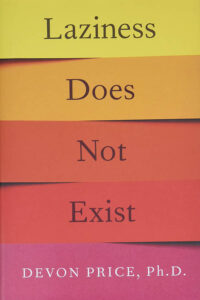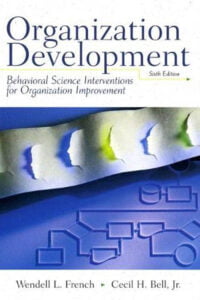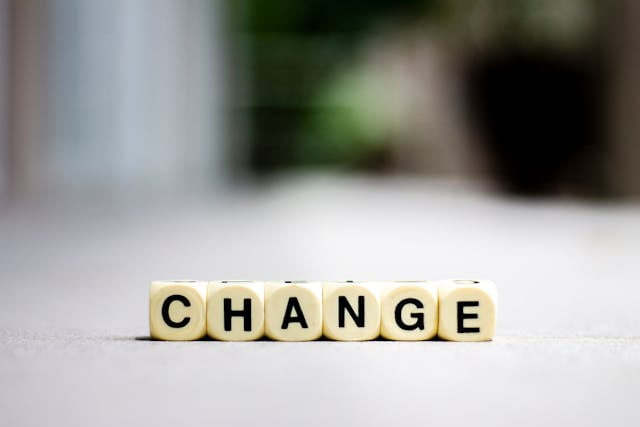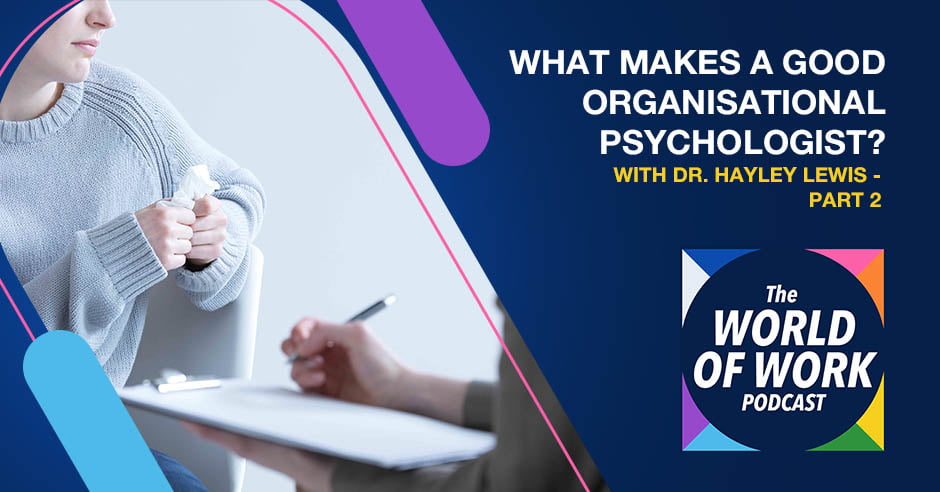
The workplace is not just a place for us to utilize our technical skills; it is also a place where we have to navigate various psychological dynamics. An organisational psychologist is the best person who can assist us in this area. Back for the second part of our conversation on organisational psychology, Dr. Hayley Lewis of Halo Psychology dives deeper into what the profession can offer. She breaks down the key characteristics that make a good organisational and occupational psychologist in the field. Working as translators to the public about the world of work psychology, Dr. Lewis also shares how practitioners can get better at informing more people about the things that can help them. From simplifying and providing access to research to utilizing social media, she shows ways to engage more people and bring them into the fold. What is more, Dr. Lewis shares three theories that are fundamental to the workplace. Don’t miss out on this jam-packed conversation that can help transform the world of work!
—
Listen to the podcast here
What Makes A Good Organisational Psychologist? With Dr. Hayley Lewis – Part 2
I wanted to let you know that, as well as these episodes, we deliver at least one free online seminar every month that you’re welcome to attend wherever you are in the world. You can learn more about them and register for them via our website, www.WorldOfWork.io.
Before we get into this episode, I want to remind you of all the great stuff on our website at www.WorldOfWork.io. Over there, you can check out all the online seminars and workshops we do, as well as our team development programs. You’ll also find articles on topics to help you thrive at work. Now let’s get onto the episode.
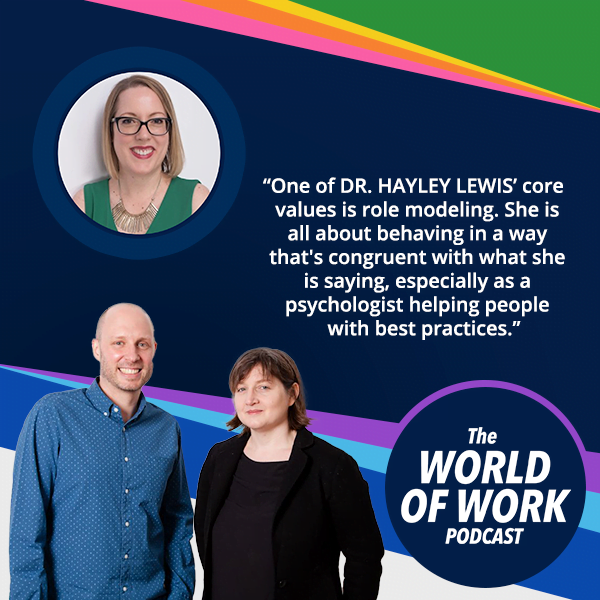
Welcome into this episode. We are back with the second part of a two-parter. We are very excited to welcome back Dr. Hayley Lewis of HALO Psychology to join us to continue our conversation. Welcome, Hayley.
Thank you for having me back. As you found in the first episode, Jane, I’ve got a lot to say about a lot of things.
I know. I’m excited about our conversation because we’re going to carry a little bit of what we’re talking about in your research, but we’re also going to broaden the conversation a little bit into the World of Work and our own reflections on it, which is super exciting. Before we do that, for those who haven’t read the first episode, could you say a little bit about yourself and your background?
I’m a chartered and registered Occupational Psychologist, which probably won’t mean a lot to some listeners. Hopefully, it will mean something to others. I specialize in leadership and management behavior and how this impacts culture and performance. Although my researchers as we’ll talk about it again and we talked about it in episode one, it’s on something slightly different. I have a portfolio career now as well as running my own business.
I also teach at several universities. I now look after the first part of the Doctorate program at Birkbeck. Before saying about my business, I spent several years working in corporate roles. First at the BBC and in local government. That taught me a lot but it’s helped me as a practitioner and how I show up and work with my clients.
It’s lovely to have you back and be talking to you about something a little bit broader. Before we move on to some of our favorite topics, we were talking in the last episode about the piece of research you did for your Doctorate and your experience of doing that around women business owners. I was thinking about this. As I was listening back and editing the first episode, it sounded obvious, but you’re a woman. You own your own business. We talked a little bit about your business and the impact on it a little. I wondered, what did you personally take from that experience of research on that topic? How is it showing up in your practice now?
There are two things that I personally got from doing the research. The first was making sense of validating my own experiences, the ups and downs, particularly in my first year of setting up and running HALO and the downs. It helped me make sense of why I found things particularly hard, in particular, not having any work. I did not get any clients working in my first six months. It helps me make sense of that.
In terms of what it means for me now, the one of the main findings from my second study, which flew in the face of what previous research has said about women business owners over the years, is what stood out for my second study. Every woman I spoke to had taken the time to develop their business plan. They’re thinking about why their business existed. Not just in and of itself but also the life they wanted and the stuff behind that around understanding your market, sector awareness, competitor awareness, and not being frightened of that.
My research flew in the face of that. What that means for me now is I regularly schedule time to work on my business, not just in my business. It sounds very promising as the CEO. Once a quarter, I schedule half a day called CEO time, where I reflect on my business plan for the year and the goals that I’ve set for myself such as new products or services. That practice has come out at the back of the research that I did.
It makes a lot of sense but it also ticks a lot of bells. Following on from that, as I was reading our conversation and it struck me that there is something terribly matter stroke confusing about when you’re practice is organizational occupational psychology, leadership, or management. You are also a business owner working with people. The thing that James and I always talk about and the readers know this is that we get these moments where we’re like, “Are we doing as we say we would do?”
I wondered if you wouldn’t mind sharing a little bit about how challenging or how much you find yourself tripping up yourself. I’ll give you a very practical example. James and I talk about celebrating success a lot with our clients. We have huge problems with brilliant and very fast-growing organizations that are so busy looking ahead. They struggle to bring their staff into that moment of looking behind and looking at how far we’ve come. Yet, it’s also a problem for us. I wonder if did you find that hard or a benefit or a bit of both?
I personally find it fairly easy. One of my core values is role modeling. Being behaving in a way that’s congruent with what I’m saying. That’s always been important to me. It was important to me when I was in leadership roles in local government. It’s even more important to me now as a psychologist who regularly shows up on social media and espouses all sorts of best practices. It’s quarter who I am that I’m, as much as possible, being conquering with what I’m saying. I’m role modeling to my clients, students that I work with, and people that I mentor. Do I always get it right? No. Am I always trying? Yes.
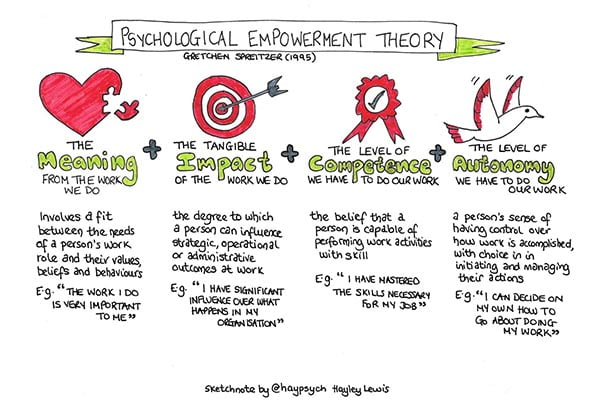
Organisational Psychologist: One of my core values is about role modeling, behaving in a way that’s congruent with what I’m saying.
There’s that importance of trying, conscientiousness, and deliberation. James and I talk about intentionality until we’re blue in the face with pretty much everyone. If we could only give one piece of all of the people, we’d be more intentional if we could. What you say makes total sense, but it also gets me thinking about what it is you think makes a good organizational occupational psychologist in the field. I’m talking very specifically. I know you’ve been doing some very academic research and always referencing the literature quite rightly. From a practitioner’s point of view, do you think that walking the walk is critical? If so, what else do people need do you think?
I know it’s easier said than done and it might be contentious for some of your readers, but in my experience, both as a practitioner myself and also working with other practitioners. The best occupational and organizational psychologist practitioners are those who have been in real-world jobs. I’m not saying being an org psych isn’t a real-world job.
What I’m talking about, for example, in a management role in a particular sector, have you been in front-facing rowing in a customer service-oriented role and experienced the ups and downs of those roles? There are two benefits to that. The first is, as you and I were talking about, it helps you anchor some of the key theories, models, and concepts. More fundamentally than that, it gives you a depth of understanding and a degree of empathy when working with clients. It’s one of the regular pieces of feedback I get from my clients.
The majority of my clients are either repeat. They’ll come back to work with me again, either on a different piece of work or a continuation or it’s word of mouth where someone has recommended me. The consistent feedback I get from either of those ways into working with me is they value my depth as a psychologist. They also hugely value my experience, having been in corporate management and leadership roles where I openly talk about the struggles that I had. The battle scars I earned. I have to find another $250,000 of my budget when I’ve already given up $500,000 from my budget that I didn’t have.
The bulk of my budget is humans in roles. It’s jobs, but the work still needs to be done, having to negotiate with unions and motivate that member of staff who the week before was a joy to work with, and now they’re your worst nightmare. I’ve seen a lot and I bring that to the table. Clients love that combined with the richness of psychology.
As I say, that’s a personal view. I can imagine some readers are saying, “That’s easier said than done,” or they might have just gone straight into a psychology consultancy. It doesn’t mean you can’t be a good practitioner. Maybe at some point, think about stepping out even briefly and getting some of that additional experience because it will give you that edge in the long run. I truly think that.
If we were to flip that on its head, what we might say is if people are thinking about going in if you want in your view. I would agree to give yourself the best chance of being the most relatable. I acknowledge if you are going to be an occupational psychologist who sits in front of a computer and does all of the hard stuff that I am not particularly good at around psychometric testing analysis, building, and validating tests, then I understand that it may be less of an issue.
When you’re trying to spend meaningful time with clients like my experiences working in retail, it doesn’t have to be necessarily completely the same as your client, but it’s about that ability to empathize and demonstrate that empathy. I always think about trust because it comes up in so many places in our work, doesn’t it?
I think how much easier is it to trust when you can hear about someone’s experience of being in your shoes? We’re human and we have all of these cognitive biases and other things going on in our brains. As organizational psychologists, we can speed past some of them to build relationships faster. We’re going to be able to help clients faster. That’s where I go to. Based on that, have you got any thoughts on what else makes a good organizational occupational psychologist practitioner?
One of the things that I say to students that I work with is to be curious, pay attention, read, listen, and get information about stuff outside of occupational psychology. Don’t just read stuff that’s related to our field, whether it’s HR-related magazines or being part of CIPD, but are you, for example, paying attention to what’s going on technologically in the world? Are you paying attention to what’s going on with the economy and how that might affect organizations or specific sectors? How do people do or don’t show up to their jobs? What might be impacting their motivation? Are you paying attention to world events in other parts of the world?
I’ve talked about this a lot, particularly on Instagram. I pay a lot of attention to what’s going on in America in terms of their governance and the legal stuff because they’re a superpower. They are the superpower and it has a ripple effect on other countries around the world. We should be paying attention to what’s happening elsewhere. I always encourage students to read widely and be part of groups that aren’t necessarily associate.
There’s always a connection unlike some of the other disciplines of psychology. Okanogan Psych is particularly unique because it touches so much. Most of us spend a large proportion of our time at work doing jobs. There’s not a part of someone’s life that can walk psych when we’re unlikely to touch. If you take clinical forensics, that’s a very specific focus. Okanogan Psych has depth but also breadth. Be curious, pay attention, and be interested in things outside of our immediate domain because there’s always a link to what we’re doing.
Be curious, pay attention, and be interested in things outside of our immediate domain because there’s always a link to what we’re doing.
That’s the thing I love the most about what we do and the different ways. Every single thing that’s going on around you pretty much has someone labor involved. It’s someone’s experience of labor and that’s super cool. You talked a little bit about your thoughts on practitioners, but I also know that you’re passionate that organ oxide is for everyone. It does touch on everyone. You and I have both talked about being in this because we think there are real games that people can experience from it. I know you’re quite active on social media. What do you think is the best way? How can we, as practitioners, get better at informing more people about things that can help them? What should we be doing and what should they be doing to get more out?
This is the thing that I’m most passionate about and one of my frustrations as well. Particularly about the pay and firewalls that prevent the public from accessing helpful research. It’s not just about the paying forward. It’s about the way academic research is written. Even I struggle with it. Sometimes, I have to read one sentence 30 times and I still haven’t got a flipping clue what the research is talking about.
Our job as psychology practitioners is to act as translators and to be the bridge, offering helpful research, models, and concepts to people who might otherwise never come across some of the stuff that we use. How can we best do that? The way we do that is by communicating on things like social media by incorporating this stuff into workshops and courses. Anybody who attends any of my courses or workshops knows that I weave in what the research says.
I share a nice little visual of a model. I’ll talk about the research behind it and what we might take from that, but I talk about it in an accessible way in a normal human language. Our job is to act as the bridge and as the translators. I still don’t see enough practitioners out there communicating our stuff in accessible ways.
Again, it’s one of the things I suggest to students when I’m doing career talks. Some of them are doing amazing research with their Master’s. For example, their Master’s dissertations. I say to them, “Are you going to share any of it on LinkedIn, Instagram, TikTok, or whatever platforms you’re on?” No one ever does. Sometimes, I say to students, “Why don’t you write a summary of your research and write a blog post for me? I’ve got a lot of followers on my blog. It gives you a platform. You never know where it might lead.” I’ve had one student in seven years do that, and she got a job. She got approached because her research was relevant to a consultancy. They’d read my blog post and it gave her a way to apply for a job. There seems to be this reticence and fear.
That’s fair because I put myself out there quite a lot. Even I haven’t published anything about my research in my Master’s because we are trained. I love that we are trained to be highly critical, particularly because Birkbeck is very passionate about it, which is where I did my Master’s. If you take that lesson well, you see such floor in your own work.
If only you’re going to stop at Master’s and you’re going back into the workforce, you’re like, “I don’t want to put my neck out. I’m not an academic.” That’s a real shame because I feel like everyone should be researchers. Somewhat controversially, the 10 to 20-person organization that I used to work for ended in SurveyMonkey.
In our SurveyMonkey, which was a staff review, it could have been, depending on how they’ve done it, a little piece of research. Hasn’t gone through any of the levels of an academically published paper? No, but if we started to think about all of that, and now I mention it, one of the episodes that we did was with Dr. Oli Mival, who is head of research at PicsArt and used to be head of research at Skyscanner. He was talking about how people can bring the idea of research into their everyday lives.
I love that. This leads to the question, what should they be doing, do you think? The people who aren’t researchers. The people who are out there living their lives, reading and going, “This is interesting but I don’t know how it’s relevant,” and thinking, “Org Psych, you need to do more of that and share more.” What should they be doing, or what do you think they could do to benefit from all this?
The first thing that brings to mind is even if you’re not a researcher, there must be something you’re interested in and care about in your practice. Maybe there’s an approach that you’ve learned about and you use quite a lot and you’ve seen the impact. Talk about it. You don’t have to be an academic to share models, concepts, and theories. You can talk about it in terms of why you use it and how others might benefit from using it.
You don’t have to be an academic to share models, concepts, and theories. You can talk about it in terms of why you use it and how others might benefit from using it.
I’ve started to see some folk do that in places like lightning scenes. I don’t call myself an academic. I call myself a pracademic with my main in practice with a little smattering of academia. I like your point about how we can all be researchers in our everyday lives. It goes back, I suppose, to my answer to your previous question about reading lots and getting engaged in conversations more.
I love some of the conversations that come up on my comments threads when I post something about a study or a concept. I love the conversations that take place. The best conversations are those that start to take place between they’re not with me, where people start to share stuff and ask questions with each other. That’s how we can be many researchers as well.
I learned something every day from the comments threads where somebody shares an additional model or concept that I haven’t even thought of. You don’t have to be an academic. Think about the stuff that you care about that you’ll use regularly and how you could share and talk about that so it might benefit others, then participate in conversations, whether that’s in face-to-face sessions or online. Be humble and curious in those conversations as well. You might be surprised by what you learn as a result of sharing some of your own stuff.
Thank you. That leads us to a subject that we did mention last time, but I feel like I would not be doing my duties of show if I didn’t ask about it. One of the many ways that I come across your work is on LinkedIn with your sketch notes. As someone who has zero visual ability, let alone drawing ability, I find them stimulating and arresting to stop for a minute and remind me of a model I haven’t seen for a while or a theory or maybe something that I’ve been meaning to read that you’ve kindly gone ahead and read then done me a nice visual of. I was a little bit interested in why you take the time to do that. If you think there are other things like that, you’d like to see the profession doing more of to engage people.
There are two reasons I do the sketch notes. The first is to help others. This goes back to our conversation about making what are useful concepts, frameworks, and constructs accessible to the public and hopefully, inspiring some of them to do their own further research. There’s nothing that gladdens my heart more than when a manager or a practitioner either in the comments thread or sends me a direct message saying, “This inspired me. I’ve gone off to find the research. Can you send me a link to the journal article? I’ve gone and bought the book that feeds me and nourishes me.”
The second is there’s something so immersive. I always find it like a form of meditation. I know they don’t like a bit of coloring in because of the way I do that I don’t do it digitally. It’s pencil first, then I go over in ink. It takes me about an hour and a half to do a sketch note. It helps anchor my own understanding or further deepen my understanding of something or questions that might pop up, which then leads me to do some further reading that I hadn’t thought about before. I learn as much from doing the sketch notes as hopefully others learn from doing them.
I get a lot of feedback about my sketch notes. I always get a lot of questions about how I do them and why I got into them, particularly in 2023. The feedback that I’ve gotten the most, either publicly or privately, is there’s something about the sketch notes that stands out on LinkedIn or Instagram, but particularly LinkedIn, which is my main platform. People like that.
There’s something about the color and the simplicity that cut through the noise and often the crap that we see on LinkedIn. People are always surprised by but the depth of the message in the post behind the sketch note. The feedback that I get is I can see that you’re not putting out any colorful things. You’ve helped me understand the thing, the concept, or the model in a way that I hadn’t thought about before.
There’s something for practitioners out there or academics or pracademics about finding ways to communicate messages that work for your audience that you’re trying to get. The trap I see lots of people fall into is communicating in a way that they’re used to or that works for them. You’re not talking to yourself, or you might be. Who is it you’re trying to talk to and reach? What stuff did they like? What content seems to resonate with them? Where do they go for that content? Give it to them.
I always look at them because I’m like, “I remember that model and now I can use that.” A number of times, it reminds me of something I’ve forgotten, and I’m like, “That’s excellent.” They remind me of the importance of the accessibility of what we do, and we talked about this in the first episode very briefly. I am so frightened and strong, but I am so frustrated. Again, I need to do the research, but it appears to me that where people are practicing organizational occupational psychology is in large businesses. Government organizations are hugely as well, to be fair.
I said it before, there’s an insane number of small, medium-sized enterprises in the UK. It’s by far the most common situation. They don’t have access to it. Every time I see a sketcher, I’m like, “We need to do more of that.” Speaking of stuff that you’ve put out there that’s helped people. James and I have been asking people, do you have any favorites? We’re curious because everyone who reads our stuff when the two of us are doing our stuff will know that James and I have some pieces of research.
The Nun Study, for example, if you don’t know it. Shout out to Kevin Tier. I fangirl over the Nun-study with him, sometimes. It’s a piece around positive psychology and it’s a brilliant study. Things like that get my heart racing for how much they help other people understand. You’ve done so many of the sketch notes, and you’ve been practicing so long. Any favorite models, theories, or pieces of research that you think everybody should have read?
There are three theories that we’re all in the same family that I might go to that I love and seem to inspire and motivate many of my clients. The first is the theory of thriving at work, which was developed by Gretchen Spreitzer and several colleagues, including Adam Graham, back in 2005. This is a theory that I don’t often see, mentioned, or talked about, but it’s a beautiful theory. It has some interesting elements to it. It was one of the theories it was called to my own research, which is why I’m so passionate about it.
I use it with lots of managers that I work with. The theory of thriving 2005, then two others are the self-determination theory by Desi and Ryan and psychological empowerment by Gretchen Spreitzer. Again, all three of those theories talk about the importance of autonomy, learning, and having the skills to do what it is you need to do and that sense of belonging. Those ingredients are so fundamental to us being our best selves and doing our best work.
Autonomy, learning and having the skills to do what it is you need to do, and a sense of belonging are fundamental ingredients to us being our best selves and doing our best work.
They are my three go-to’s. In terms of two studies, I love a systematic review. I don’t know if Doctors Rachel Lewis and Joe Yorker read this show, but if they do, they’ll laugh because I’m a big old geek for systematic reviews. Not many people like them. I love them. Two of my favorite studies are systematic reviews.
One was by Alex Newman and colleagues about psychological safety. The benefits of psychological safety and the factors that can help facilitate it is a hugely powerful piece of research. A South African study that did a systematic review of the characteristics of servant leadership. Nobody had done that before, and that can provide a bit of a blueprint for any leader wanting to develop a servant leadership style. I made a sketch note about that. Lots of the leaders I work with have found that study in me talking about it and sharing the characters. It’s helpful as a way for them to further their own development. I’m being very cheeky. I’ve shared five. I hope you’ll let me off.
I might start christening at Dr. Hayley’s top five. I managed to do it before we published the episode. I can try and get those on a page somewhere because I would agree with a lot of that. It’s interesting. It fascinates the people who don’t like systematic reviews. Anyone I know who’s got some level of academic experience at university, nothing to do with those psych, they say, “What’s the best way to get my head around some things?” I will send them off to a systematic review of psychological safety because if they can get it and get through it, it’s probably the quickest way to do it. I’m surprised you say that but I get what you mean. They’re not always. They’re the grunt horse.
To do a systematic review properly, there are certain steps you need to go through. If you don’t have a team of researchers waiting through 17,000 articles that come back to siphon out what is and isn’t right, it is no easy task, and be clear on your criteria. I’m a very systematic person. I love a process. Also, we know that a systematic review, particularly combined with a meta-analysis, is among the most reliable forms of research you can get.
I’m listening to you and having a geek mode. I’m always surprised that there isn’t a library of core systematic reviews and a clear list somewhere of all the systematic reviews that doesn’t exist but are around things that probably should exist because we use them extensively or they exist, but they’re not great and they could be built on.
I feel like the people who do them are so process-driven. They’re brilliant at managing huge, vast amounts of information and data. They’re very meticulous. I’ve said this to one of our guests, “Wouldn’t it be amazing if you go on to Google and you could click on something and little lines came out of it? All the systematic reviews that were cited came to the left and all of the empirical researchers that’s came to the right. The mix method is down here. You can have this understanding of how the literature builds. It would be such a leveling up of textbooks, so simply. It frustrates me. I’m glad you mentioned it. Shout out because this is a matter of reviews that I wasn’t expecting to play. There are people reading going, “What? I thought they were right.”
Now they know differently now.
I’ve got one last question for you. It could be quite a big one but you can choose not to answer it. We talk a lot about how, certainly in the UK and largely in the West, a lot of rights and societal changes to things like inclusion, exclusionary practices, and diversity. The big stuff, the idea of a weekend, comes from fundamentally redesigning labor. We talk a lot about how society is shaped largely through the prism of work.
One of the things that we’ve talked about a lot is how work, certainly in the UK, can get better to grips with removing exclusionary practices, particularly around protected and non-protective characteristics. Maybe it’s hopeful, but for me, that’s where a big part of organizational occupational psychology should be and probably will be focused over the coming years. I want to ask you this. What do you think the media midterm future is? Where do you think OP can most help society at the moment or should be?
I don’t have a hugely in-depth answer. I’ve been thinking about this stuff a lot, and my culpability and organic psych’s culpability in feeding the capitalist narrative of your worth only comes from the job you do and the work that you do. In particular, if you’re prepared to go above and beyond. I had a manager send me a question on LinkedIn. His instinct is they’re doing enough. I am going to go back and say, “Why is that not enough? Why is doing enough not enough? Why do you need them to get more?”
They’re paid to do enough of their job. We’ve been sometimes culpable or often culpable as org psych about how to help managers and organizations get more out of people to get them to put in discretionary effort. I have to say, if I think about myself, I’m ashamed to have been part of that. One of the things that led to me thinking about this is a book I read. I have to say it’s the most powerful book I’ve read this century. Its Laziness Does Not Exist by Dr. Devon Price.
It’s not an easy read, but it talks about how our work practices are so toxic, unhealthy, and geared around a capitalist narrative. Is that stuff easy to dismantle? Is it easy to push against? Does it mean we shouldn’t be questioning that stuff? Should we be questioning the role that we play as practitioners and academics and perpetuating overwork? People doing stuff for free and people not feeling safe that if they don’t go above and beyond, they’re going to lose their jobs. We should be questioning ourselves and our role in that moving forward. I don’t have a straightforward answer. Rather, I’ve got questions that I posed to myself and other practitioners.
That’s part of the reason I asked because James and I talk about that question all the time. We do bits because that’s why we do what we do and why we’re CIC, but it’s like everything. It’s like science. It’s like all of them. It’s not the research, the model, or the practice. It’s what you do with it and your intentions are. I’ll never forget having a big old row in my Master’s second term about goal-setting theory and where the goal-setting theory is in itself. Humans can’t be trusted.
It was where the conversation was going. I feel like it’s about the truest sense of education. I know I’m going to begin to sound like I’m drifting off into a realm of naivety. We did an episode about employee engagement and the fact that PERMA. Lots of the models will tell us that if we have purpose, connection, or PERMA work, then it’s a great thing. No one asked the big question of why it have to come from work and it should have to come from work.
No one says, “What is wrong with a fair exchange of labor for money?” It’s in my mind. For those who don’t know, in the UK at the moment, we’re seeing a bit of union action, which we haven’t seen to any great lengths. Certainly not successfully capturing the public interest for a very long time, and the expectation I would have from someone who is very much supportive of the capitalist narrative would be we’ve all got our own abilities. We should negotiate them to the best of our ability, then they watch a lot of people getting together and doing it. They’re like, “Not you. I didn’t mean you. You can’t do that because that’s less money for the shelter.”
I go around in circles because I’m not even 100% sure it’s capitalism, but very specifically, shareholder capitalism that creates the biggest of our problems. People would have heard James Nyes in our responsible business episodes talking about different ownership models. You mentioned economics, and it’s important. Economics, society, social psychology, and org occupational psychology, and sociology probably feel like they very much help inform each other to understand how it’s okay to have dreams that are about yourself.
It’s weird because individualism is a thing at the moment. Everyone is very much about themselves, but in work, it’s still very much you should be beholden to someone else and you should be working on behalf of someone else. I don’t know how we fix that. It’s reassuring to hear other people think about that. If someone was not an org occupational psychologist but was thinking about this stuff a bit, you mentioned that book, which sounds great, is there anything else that they can do or should read or listen to? What do you listen to keep yourself informed on stuff like that?
For the show, I listen to stuff to switch off. I listen to a lot of paranormal shows. I’m not the best person to ask around that stuff, which my husband finds hilarious. He’s like, “You’re a scientist.” I’m like, “Yes.” It’s just because we can’t say something. I’m not the best person to ask but I do consume a lot of news. I make sure that I am consuming news across the spectrum of political ideology.
I’m a member of a couple of think tanks. For example, the RSA. They’re always sharing the latest thought pieces for readers who aren’t familiar with it. It’s the Real Society for Arts Manufacturing and Commerce. It’s 250 years old. It helps social good, so the big focus is social goods. I read a lot of the research and watch stuff that comes from the RSA that’s about trying to improve society and the future of work, but from a societal good perspective.
I consume a lot of different things. Again, this often leads me to have more questions than answers. There’s something powerful even in that. There’s something about noticing. We can’t develop ourselves. We can’t change or evolve our practice, whether we’re psychologists or non-psychologists. If we don’t first notice where we’re at and how we feel and think about something, we then can’t execute change or do something differently. We have to notice first. Personally, the thing that helps me notice is consuming stuff across a wide spectrum, whether that’s news or videos. Again, that’s what I’d encourage people to do.
We can’t change or evolve our practice if we don’t first notice where we’re at and how we feel and think.
While you were saying that, you made me realize that something had been bugging me that I hadn’t gone digging for ages. I’ve gone digging while you were talking. I wanted to share it with you. You might know this. I had a thing for a long time about John Lewis, which is an organization in the UK. It’s a retail organization and they are a partnership. That means that there is no one owner. They are owned by the people who are employed there, and you automatically become a partner when you work there, with some exceptions.
I used to bang on about their purpose statement because their purpose statement used to be, and I’m going to read you a quote from it. “The happiness of all our members through their worthwhile, satisfying employment in a successful business with success measured on its ability to sustain and enhance the position, both as an outstanding retailer and as a thriving example of employee ownership.”
To me, for years, that has been about as good as it gets. How brilliant would it be if businesses existed to give us great work rather than the other way around? I found out it’s changed. They’ve changed it and I’m a little bit broken-hearted. My point is, you say about paying attention. It’s things like that, you sit up and notice because you’re like, “If they’re going in that direction, what does that leave us?” I love that point you make about just being curious, looking out, and paying attention to what’s going on around you and try and think about it.
One of the books I always recommend to students is Organization Development by French and Bell. It is old but there’s some wisdom in it. It’s not that cheap, but I know lots of universities have copies for those who are students or maybe academics tuning into this. In a chapter about culture and values, they talk about organizational values being a reflection of the zeitgeist of the era.
One of the things I always get students to reflect upon we look at the different zeitgeists, so civil rights in the ‘60s, unionism in the ‘70s and early ‘80s, and the dot-com boom. Over the last couple of years, it’s been this thing about building a wall, and we want to be independent. It’s been interesting looking at how organizational values evolve and reflect what’s going on in the wider world and the zeitgeist of the era.
Again, it’s another reason why we should be paying attention to what’s going on. Not just in our own country but elsewhere as well because it can have an impact on mission statements and values such as the John Lewis example you’ve just given. They changed chief exec in the last few years, so it doesn’t surprise me. Often, the first thing a chief exec does is get their fingers all over the mission, vision and values statements.
We probably run out of time, but thank you for indulging me in a very wide-ranging conversation. Before we finish, just a quick word from you. If our people are interested in what you’re doing and what you’ve been talking about, how do they find out more about you and your organization?
One of the easiest places to find me is on LinkedIn. Put in Hayley Lewis. Reach out. I’m always happy to connect with people. There’s also my website, which has lots of free resources. You can delve into that and access all sorts of free goodies, hopefully, to help you with your practitioner or a manager or leader in the workplace.
Thank you very much. It’s goodbye for me.
It’s goodbye for me, too.
—
Thanks for reading. Don’t forget, we deliver at least one free online seminar every month that everyone can attend. You can sign up for these and our newsletter, the WOW mail, on our website, www.WorldOfWork.io.
It’s Jane. I want to say thanks for reading the whole episode. If you enjoyed it, or have a question, or if you just want to say hi, you can find us on Twitter at @WorldOfWork_IO. Don’t forget that you can also find out more about what we do, including our online seminars, workshops, and development programs on www.WorldOfWork.io.
Important Links
- HALO Psychology
- SurveyMonkey
- Dr. Oli Mival – Previous Episode
- Laziness Does Not Exist
- Organization Development
- Hayley Lewis – LinkedIn
- @WorldOfWork_IO – Twitter
About Dr. Haley Lewis
 I’m a chartered coaching psychology and HCPC registered occupational psychologist, using an evidence-based, strengths-focused and collaborative approach to my work. This positive approach is really important to me as it’s the thing I’ve found in my 25-year career, that can make the difference in moving to a bright, shining new world.
I’m a chartered coaching psychology and HCPC registered occupational psychologist, using an evidence-based, strengths-focused and collaborative approach to my work. This positive approach is really important to me as it’s the thing I’ve found in my 25-year career, that can make the difference in moving to a bright, shining new world.

